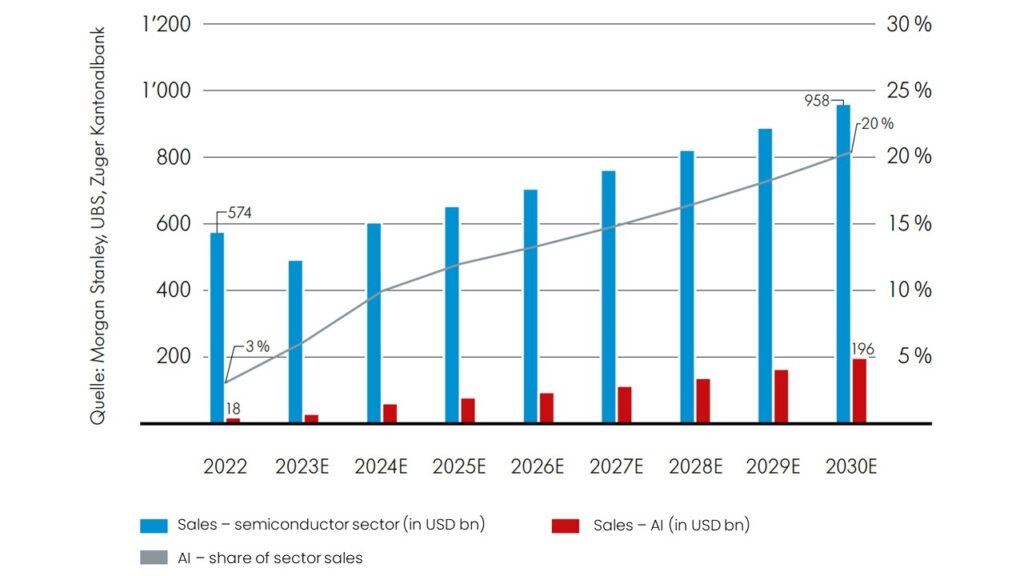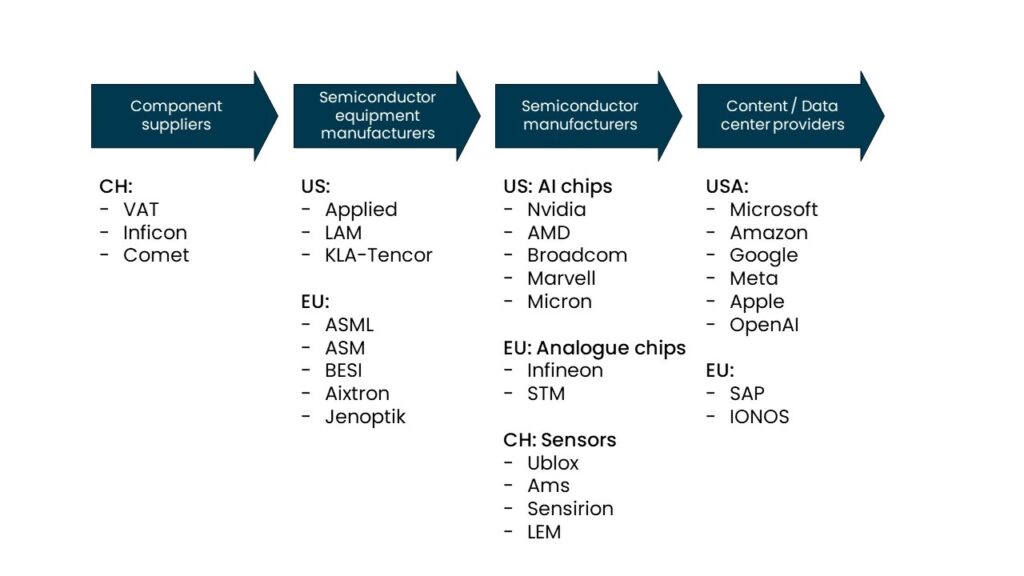Artificial intelligence heralds the next Industrial Revolution
Artificial intelligence (AI) is currently making big headline news. AI is a branch of computer science that seeks to capture human intelligence and cognition in a formal system.
Since the release of the ChatGPT AI application at the end of 2022, AI software development has grown exponentially. Developed by US company OpenAI, ChatGPT is a language program, the basic version of which is free. With the internet as a virtually infinite database, it can answer just about any question or create and design any content in text form. AI’s impact on growth will be faster and more far-reaching than previously thought. According to a study by the McKinsey Global Institute (MGI), AI could add 1.2 percentage points to annual global GDP growth between now and 2030.

The impact of AI would thus be comparable to that of the Agricultural and Industrial Revolutions in the 18th and 19th centuries. These brought upheaval of historic proportions and a 30- to 100-fold acceleration in growth and progress compared to the previous epoch. In all likelihood, AI will also usher in enormous leaps in development.
Market impact
Surprisingly, commodities and real estate could be among the biggest winners of an AI-driven economic boom. The use of AI will increase the productivity of labour and capital, which could make natural resources scarcer relative to other factors of production and thus more valuable.
AI also requires extensive technology hardware, especially powerful semiconductors, to operate. Demand for AI-enabled chips is causing a boom in the semiconductor industry. NVIDIA, for example, a leading provider of graphics processors, has really benefited of late from this surge in demand, posting sales in the last financial quarter that far outperformed expectations.
Sales in the global semiconductor industry could reach USD 1 trillion by the end of the decade (Fig. 1). Investment in new technologies and capacities is expected to double, creating as it does a positive outlook for semiconductor equipment manufacturers and component suppliers.
Swiss companies playing a role
The semiconductor sector is characterized by an advanced degree of consolidation along the value chain (Fig. 2) and high barriers to market entry. Specialized companies dominate the industry. Swiss component suppliers such as Inficon, Comet and VAT have built significant market shares in niche markets.
Other Swiss companies have gained a foothold in the field of sensors. These include the likes of Sensirion, ams OSRAM and LEM. Although none of these three companies are directly involved in the provision of computing power and storage capacity for AI systems and platforms, all of them are set to benefit indirectly from the growth in AI.

The AI chip manufacturing and content and data centre provider industries are conspicuously dominated by US companies. There are also Chinese companies active in these fields, but they are often hampered by the US authorities or simply operate in the Chinese sphere of influence. AI has then the potential to provide a strong stimulus to growth. And what better way to discover the extent to which AI will impact our society in the future than to ask ChatGPT…
Author: Nils Häller
Co-author: ChatGPT
We are at your service
Your personal partner for all matters relating to your assets.
We look forward to hearing from you!